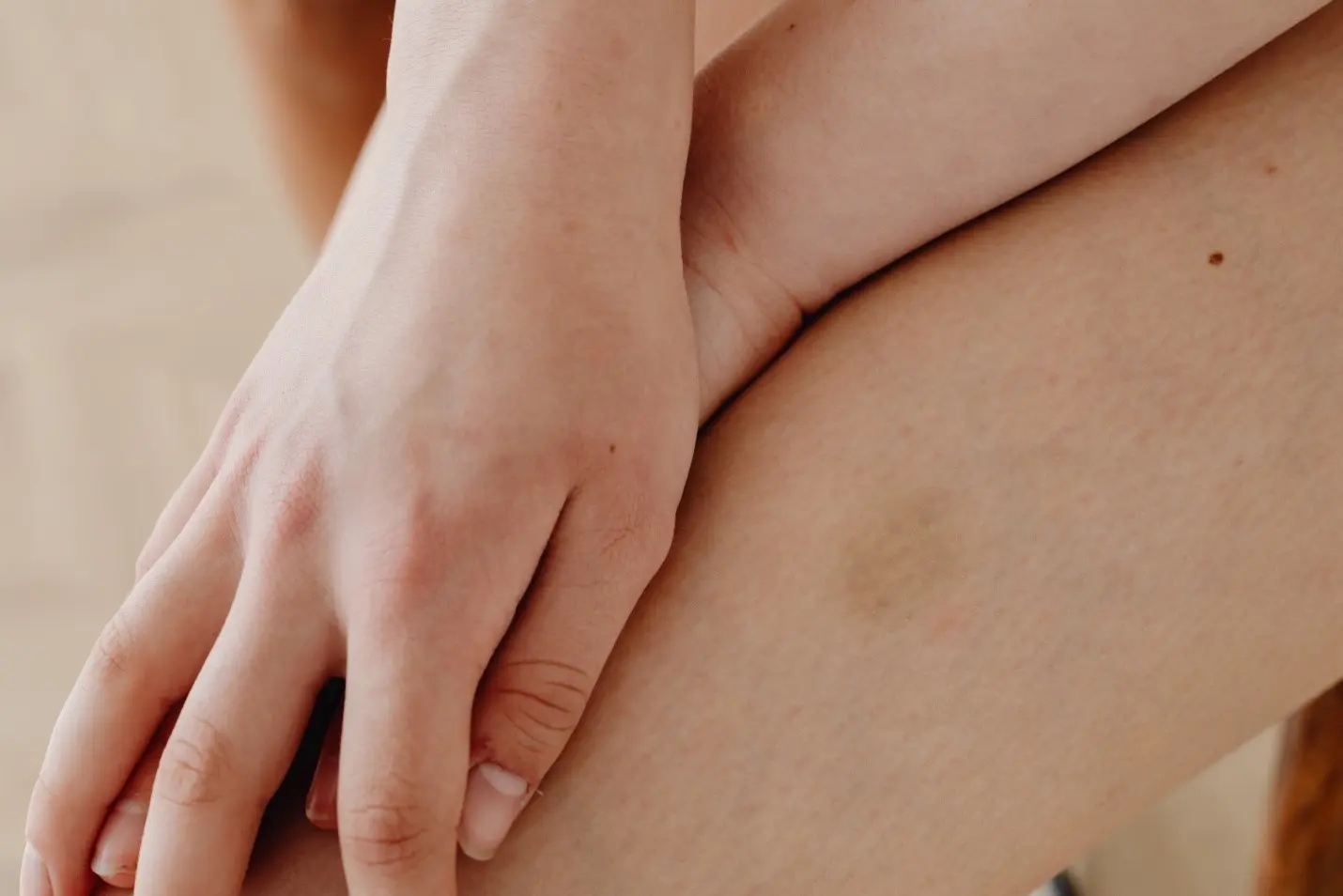
Let’s take a deeper dive into what are skin tags and how to treat them. However, educating yourself about them can help you manage the condition better. Skin tags can appear anywhere on your body but are more common in the neck, chest, below the breast, back, and groin areas.
These are extra pieces of skin sticking above the skin surface and look like small tissue flaps hanging by a growth that looks somewhat like a tree stalk. In medical terms, skin tags are also known as cutaneous tags, soft fibroma, Templeton skin tags, acrochordon, fibroma molluscum, cutaneous papilloma, fibroepithelial polyp, or fibroma pendulum.
The good news is that skin tags do not pose any health risks. Therefore, if you do notice any skin tags on your body, you don't need to worry too much about it. There is a rare chance that a skin tag could be a symptom of an underlying issue, but that would usually accompany other symptoms. So if you experience no other change in your body, you're most likely dealing with a cosmetic issue.
That being said, skin tags can cause irritation. This is especially true if they grow in body folds or have fabric or jewelry rubbing against them. If this is the case, there are various ways you can treat them.
Causes
Before we learn about the treatment of skin tags, it is important to understand what causes them in the first place. The estimations by the American Academy of Family Physicians (AAFP) show that almost half of the adults have at least one skin tag on their body, whereas older adults have a higher chance of developing skin tags than younger people.
Despite being such a common condition, it is unclear what exactly causes skin tags. However, there are certain people who are at a higher risk of developing skin tags.
- People with excessive weight (especially women)
- Elderly or aging people
- People who quickly gain a lot of weight
- Pregnant women
- People who have Type 2 diabetes or insulin resistance
- People with HVP
- Family history of skin tags (especially close relations like parents or siblings)
Treatments
As discussed earlier, skin tags do not pose any serious health concerns. Therefore, in most cases, there is no need to visit a dermatologist for it. Instead, you can treat skin tags using homemade remedies or over-the-counter treatments.
It is important to note that homemade remedies may take longer to show any results. However, they are much less intrusive and usually don’t cause any side effects.
Home Remedies
Following are some ingredients that can help treat skin tags and are likely already available at your home.
· Apple Cider Vinegar
When it comes to skin issues, apple cider vinegar is a miracle ingredient. So if you have a bottle of aging ACV in your pantry that you haven't used in months, now is the time to bring it out. However, it is important to use organic apple cider vinegar when treating skin tags or any other skin issue.
Apple cider vinegar is acidic, which causes the tissues surrounding the skin to break down. If you continue using ACV on your skin tag, it will eventually fall off.
- Gently wash and dry the affected area.
- Take a clean cotton swab and dip it in some organic apple cider vinegar.
- Place the cotton swab on the skin tag and cover it with a bandage.
- Let it sit for 15 to 20 minutes. Do not leave it for longer periods of time as it may start irritating the skin.
- Carefully remove the bandage and wash the area with a mild cleanser or soap.
- Repeat the process once a day -preferably before sleeping - until the skin tag dries and falls off.
· Tea Tree Oil
Essential oils are all the rage nowadays. From medicinal to cosmetic purposes, there is an essential oil for just about everything. Skin tags are no different as tea tree oil has shown to be extremely beneficial for this skin condition.
Tea tree oils are known for their antiviral and antifungal properties, making them an effective treatment for skin tags.
- Gently wash and dry the affected area.
- Take a few drops of tea tree essential oil and mix it with a teaspoon of carrier oil, such as olive oil, almond oil, or coconut oil (Essential oils are potent ingredients and can be harsh on the skin if applied directly).
- Saturate a Q-tip or a cotton swap in the mixture and apply it to the skin tag.
- Gently massage it for a couple of seconds.
- Cover the skin tag with a bandage and leave it overnight.
- Repeat the process every night until the skin tag falls off.
Over-The-Counter Treatments
If you are skeptical about using home remedies for skin tags, you can always opt for some over-the-counter (OTC) products.
One of the most common and quick methods to resolve the issue is buying a freezing kit from your local drugstore. In this method, cryotherapy is used to destroy the skin tissues that are causing skin tags. There are no side effects of using this method. However, some people may find this method uncomfortable.
There are also removal creams that are easily available at most drugstores. These take longer than freezing kits but are less invasive and have no side effects.
When to See a Doctors
As discussed earlier, there are cases where skin tags can be a symptom of underlying issues, such as Nevoid Basal Cell Carcinoma Syndrome (NBCCS). This rare genetic disorder indicates that a person has a higher risk of developing basal cell carcinoma.
Therefore, it is always a good idea to have a professional look at your skin tags to rule out any possibilities. Since children are at a considerably lower risk of developing this skin condition, it is crucial to visit a dermatologist if you notice any skin tags appearing on younger anyone under the age of 18.
If you are looking for a professional opinion for your skin tag, it is best to visit a dermatologist as soon as possible. Book an appointment with Suncoast Skin Solutions today.
SunCoast Skin Solutions Dermatology offices are located in Tampa / Hillsborough, St. Pete / Pinellas County, Brandon, Lutz, Winter Haven, Largo, Riverview, Brooksville, Ocala, and Daytona Beach, Sarasota, Punta Gorda, Seminole, Florida. Contact us at 1-844-786-3376 or click here.

Recent Comments